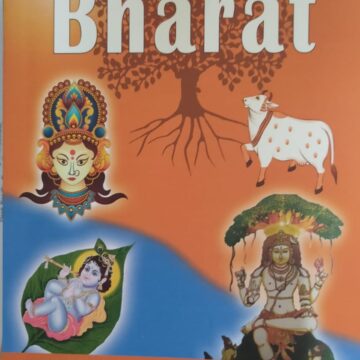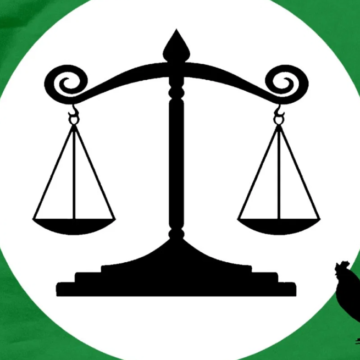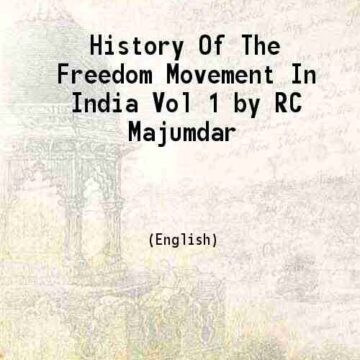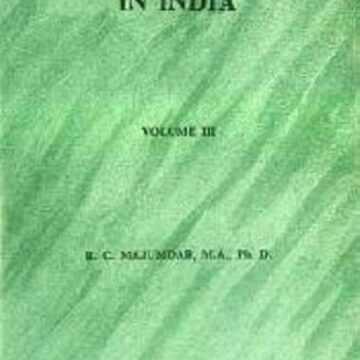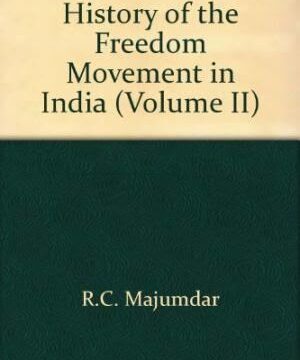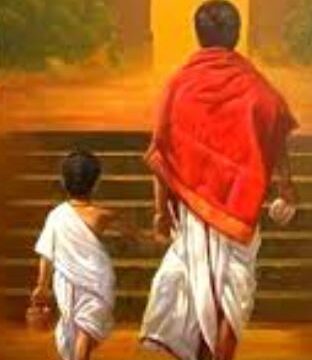The Ghent School, led by Prof. Balagangadhara, challenges colonial narratives that have shaped India's understanding of religion, caste, and culture. It argues that India's traditions differ fundamentally from Western religious frameworks, emphasizing rituals over doctrinal beliefs. The school advocates for decolonizing Indian social sciences by rediscovering indigenous perspectives and rejecting imposed categorizations. By understanding India's traditions on their own terms, it proposes a more nuanced approach to multiculturalism and identity.
Author: Pingali Gopal (Pingali Gopal)
The Divine Tree of Bharat – A Review
Dr. Pingali Gopal writes a summary-review of Achanta Nagarjun's recent book "The Divine Tree of Bharat". In the book, the author delves into the timeless values of Sanatana Dharma such as interrelatedness and harmony that permeate the land of Bharat. Drawing from ancient texts and metaphors, Nagarjun counters Western narratives of a "primitive ancient India", highlighting the enduring achievements of Indian civilisation in arts, science, and spirituality. While critiquing the impact of colonial and Marxist distortions, the author calls for a revival of cultural pride and knowledge, essential to preserving the essence of Bharatiya identity amidst modern threats.
Vegetarianism, Animal Cruelty, and Slippery Discourses
In this article, Dr. Pingali Gopal explores the unequal and complicated relationship between humans and animals, delving into the complexities of meat consumption, animal abuse and the varied definitions and perceptions surrounding them. The author contrasts the extensive use and exploitation of animals in the modern world with perspectives from Dharmic traditions. He presents the views of Swami Vivekananda and Ramana Maharishi on the subject to illustrate the nuanced stance of Dharma on the subject.
Sri Aurobindo: A Broad Overview Of The Greatest Visionary
Dr. Pingali Gopal recaps Sri Aurobindo's life, views and works; and argues that his teachings be an integral part of Indian education.
Excerpts From History Of The Freedom Movement In India By R. C. Mazumdar – Part 7 – The Enduring Myth Of 1942 Quit India Movement, And The Crucial Events Between 1942 To 1947
Dr Pingali Gopal uses R. C. Mazumdar's book "History of the Freedom Movement in India" as reference to evoke interest in the truth behind the popularised version of the history of India's independence.
The last part of the series deals with the Quit India Movement, Subhash Chandra Bose's contribution to the cause, the partition of India and final moments of dotting the i's and crossing the t's before the transfer of power.
Excerpts From History Of The Freedom Movement In India By R. C. Mazumdar – The Ruthless English: Attitudes, Second World War, Churchill, and Mountbatten – Part 4
Dr Pingali Gopal uses R. C. Mazumdar's book "History of the Freedom Movement in India" as reference to evoke interest in the truth behind the popularised version of the history of India's independence.
Part 4 deals with the naked reality of the Raj in India - the avarice, the ruthlessness, and the cunning of the British in bleeding India dry; and ultimately their reluctance to exit or even to contain the spread of the wildfire that was religious hatred and crimes that ensued.
Excerpts From History Of The Freedom Movement In India By R. C. Mazumdar – The Muslim Politics – Part 3
The point Mazumdar repeatedly makes in his book is that the Muslim leaders were extremely clear on what they wanted. The Hindu leaders remained clouded and romantic, dreaming of a unity not simply existing in the minds and hearts of their Islamic counterparts.
The central idea of all the proposed alternatives was that the treatment of Muslims should not be as a minority community in Hindu India but as a separate nation with a distinct culture.
During this great metamorphosis of Muslim politics in India, neither the Congress nor the Hindu public men gave it the serious attention it deserved. They angrily opposed the idea of vivisection of India in any form and took their stand on the twin ideas of Indian nationality and Indian unity—the ideas that the Muslims rejected in almost one voice.
The Hindu leadership never belonged to the Hindus, and the Muslim leadership was devoted to nothing except Muslims and Islam.
Excerpts From History Of The Freedom Movement in India By R.C. Mazumdar – The Politics Of The Book – Part 2
Dr Pingali Gopal explores the goings on that led to the birth of R.C. Mazumdar's book "History of the Freedom Movement in India" as the author tries to bring to light the truth behind India's independence and tries to redefine what "foreign occupation" means.
The rest of this series is a summary and paraphrasing of the works of RC Mazumdar. The essays are directly from the book, without indication as such in all cases. The first-person component of the essays also belongs to Mazumdar. There are no extra elements or comments added to the text of Mazumdar except for some editing and slight additions to give clarity to the background context and to give a smoother flow to the topic under discussion. The aim is to give an overview of the freedom struggle from a different perspective.p
History Of Freedom Movement: The View Of R.C. Mazumdar – Part 1
Dr Pingali Gopal uses R. C. Mazumdar's book "History of the Freedom Movement in India" as reference to evoke interest in the truth behind the popularised version of the history of India's independence.
Varna And Birth
It is one of the strangest ironies that, despite being an intricate part of our daily lives, we do not have any theory explaining Varna, Jati, and Kula. It is also not clear whether caste, understood as a class system, can be the foundation for understanding the complex arrangement of Varnas and Jatis in Indian society. One of the biggest sources of contradictory strands is the issue of whether Varna is by birth or not.
Chittaranjan Naik concludes that birth is not the cause of Varna, as popularly understood; it is the identifier.


